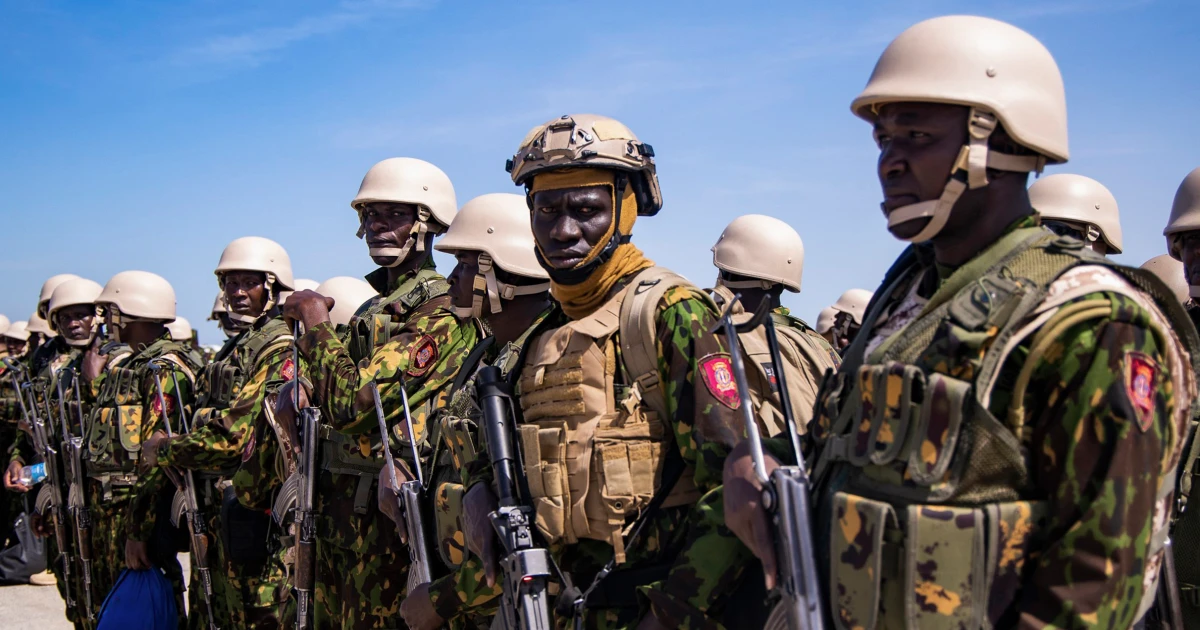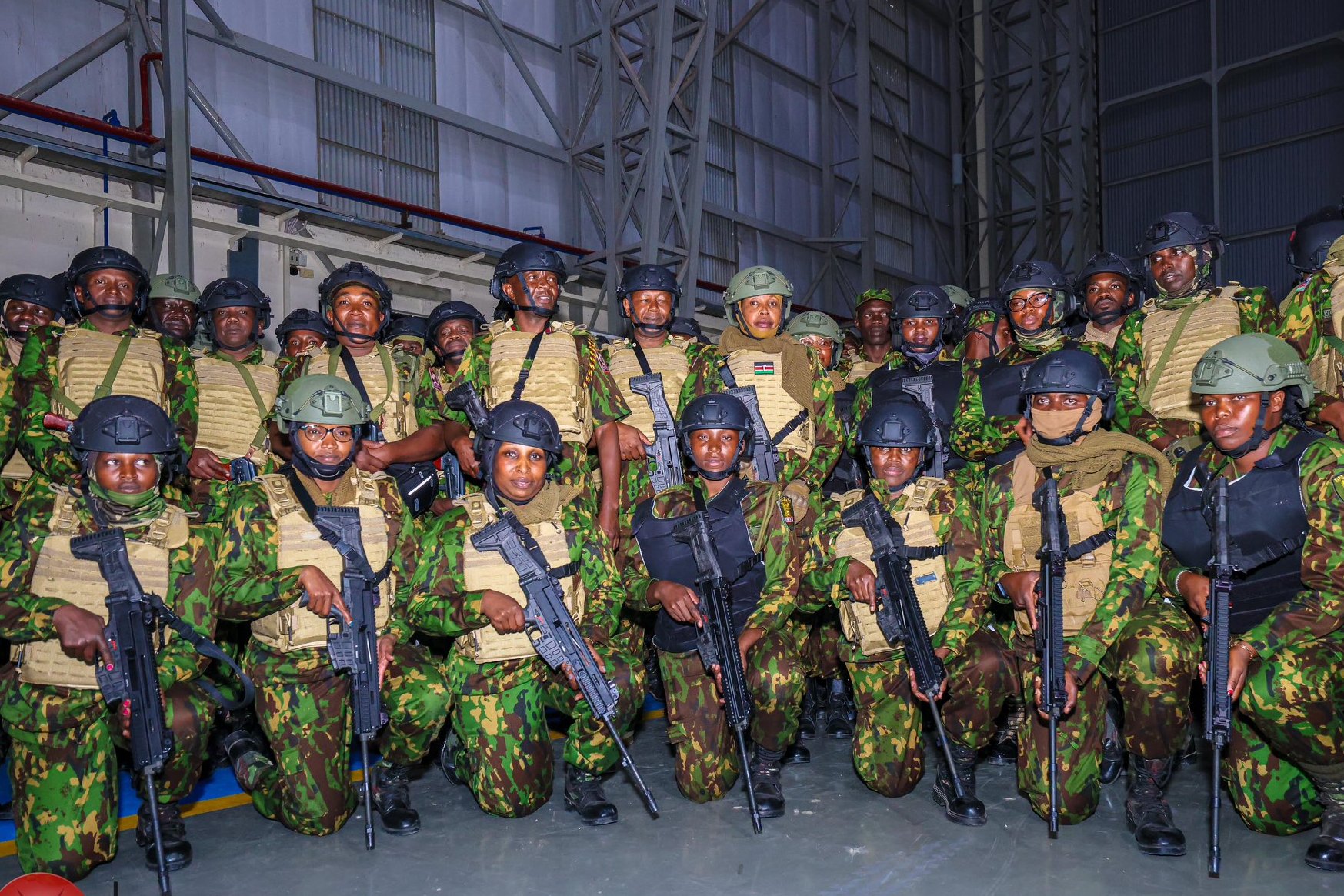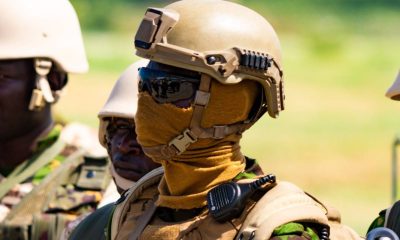News
US Rethinks Haiti Mission as Kenyan Police Rebel and Latin America Prepares Troop Deployment

The Haiti Mission is at a breaking point. As Kenya’s police forces protest their role in the troubled Caribbean nation, the United States is quietly working on a backup plan — one that may sideline Kenya and reshape the entire mission.
With growing unrest in Haiti and political pressure mounting back home, Washington is now courting Latin American troops through the Organization of American States (OAS).
The move comes just five months before Kenya’s controversial Multinational Security Support (MSS) mandate ends. What started as a temporary intervention could soon become a deeply divisive global operation.

The Haiti mission was never just about peacekeeping. It’s about power, influence, and the struggle to control a nation plagued by decades of instability. Kenya stepped in when no one else would — but now, as its own officers protest and the mission falters, the US is turning to a different strategy. [Photo: Courtesy]
Haiti Mission Faces Tensions as the US Looks to Latin America for Reinforcement
The United States is reportedly exploring the deployment of troops from Latin America to reinforce the Haiti mission — a move that could sideline Kenya, the current lead of the Multinational Security Support (MSS) Mission.
The new plan would place troops under the umbrella of the Organization of American States (OAS), a regional bloc historically aligned with US foreign interests.
The OAS plan is seen as a fallback strategy, especially given the uncertainty surrounding efforts to convert the MSS into a fully-fledged United Nations (UN) peacekeeping mission.
Both Russia and China are opposed to the idea of UN blue berets taking charge in Haiti, blocking US efforts at the Security Council. That deadlock has pushed Washington to pursue other options, particularly those that rely on hemispheric cooperation.
Kenya, which has deployed over 1,000 police officers to Haiti since 2024, confirmed it is aware of the US plans. “That is a greater involvement of Caribbean countries, and it will serve to make the Haitian stabilisation effort a collective international effort,” said Dr. Korir Sing’oei, Kenya’s Foreign Affairs Principal Secretary.
But behind diplomatic language lies deep frustration. Kenyan officers have raised concerns over poor coordination, unsafe conditions, and limited funding.
At home, public opinion is divided, with protests erupting over why Kenyan lives are being risked in a mission many believe is driven by Western interests.
Kenyan Police Push Back as Pressure Mounts
On the ground in Haiti, the Kenyan police deployment is under strain. Officers have voiced dissatisfaction over their living conditions, delayed allowances, and inadequate support. Some have even protested, raising security fears for the mission itself.
“The deployment was rushed and lacked proper logistical support,” one officer reportedly said anonymously. “We’re being used as pawns in a much bigger game.”
Meanwhile, Kenyan opposition leaders and civil society groups have questioned the legality and morality of the deployment. The High Court initially blocked the mission, but the government pushed ahead after legal maneuvering.
The backlash at home could not have come at a worse time. The MSS mission is set to expire in just five months, and the international community is still unsure of what comes next.
If the US plan to involve Latin American troops succeeds, Kenya could find itself phased out — diplomatically sidelined after taking on the riskiest part of the job.
The Bigger Game Behind the Haiti Mission
The US is not acting out of goodwill alone. Haiti’s chaos threatens to spill over into neighboring countries, especially as gangs continue to overrun key cities and ports. The Biden administration, and now Donald Trump as he eyes a return to power, sees Haiti as a security threat in its own backyard.
In recent weeks, Admiral Craig Faller, head of the US Southern Command, met with Colombia’s Defence Minister Pedro Sanchez to discuss a regional strategy. Colombia confirmed the meeting and acknowledged “interest in advancing a multinational strategy to support Haiti.”
Other countries in talks or under consideration include Brazil, Uruguay, Costa Rica, Argentina, Bolivia, Paraguay, Chile, Venezuela, and Caribbean states like Jamaica and Barbados.
If the OAS steps in, the US would be able to bypass the UN stalemate and lead an operation with countries closer to home — and more aligned with its geopolitical interests.
This approach also allows the US to offload both the risk and the blame. By shifting the narrative to a regional response, Washington can avoid accusations of imperialism while still maintaining control behind the scenes.
For Kenya, this shift is a diplomatic blow. It accepted the lead role after the US failed to convince other regional partners to send troops. The US praised Kenya’s commitment, but now appears ready to cut it loose.
Kenya Insights allows guest blogging, if you want to be published on Kenya’s most authoritative and accurate blog, have an expose, news TIPS, story angles, human interest stories, drop us an email on [email protected] or via Telegram
-

 Business7 days ago
Business7 days agobetPawa Empire Crumbles: Mr Eazi’s Betting Gambit Unravels Amid Partner’s Shadowy Deals
-

 News4 days ago
News4 days agoDCI Probes Meridian Equator Hospital After Botched Procedure That Killed a Lawyer
-

 Investigations2 weeks ago
Investigations2 weeks agoKERRA Homa Bay Region Manager Calvince Thomas Accused of Swindling Businessman Ksh 2 Million in Phantom Tender Deal
-

 Business1 week ago
Business1 week agoKRA Boss Humphrey Watanga In Big Trouble In Sh5.5 Billion Rice Import Scandal
-

 News6 days ago
News6 days agoAuditor-General Exposes Brazen Corruption at Kenya Roads Board, Sends Management into Panic
-

 Business3 days ago
Business3 days agoMinnesota Fraud, Rice Saga, Medical Equipment Deal: Why BBS Mall Owner Abdiweli Hassan is Becoming The Face of Controversial Somali Businessman in Nairobi
-

 Business6 days ago
Business6 days agoState Set to Demolish Pastor Ng’ang’a’s Church in Sh28 Billion Railway City Push
-

 Business2 weeks ago
Business2 weeks agoTreasury’s Sh40 Billion Safaricom Gamble Could Cost Kenya Trillions, Auditor Warns
























